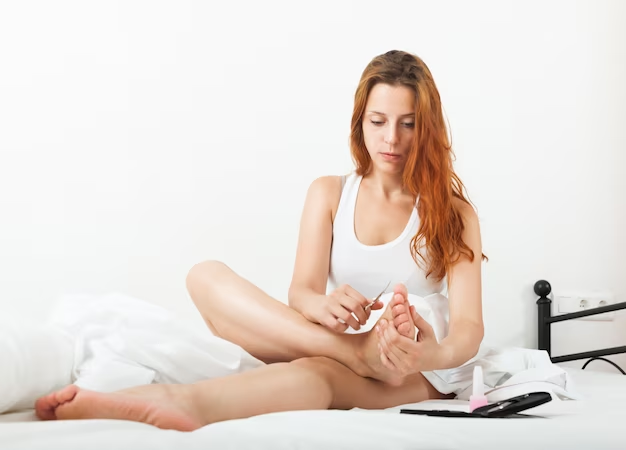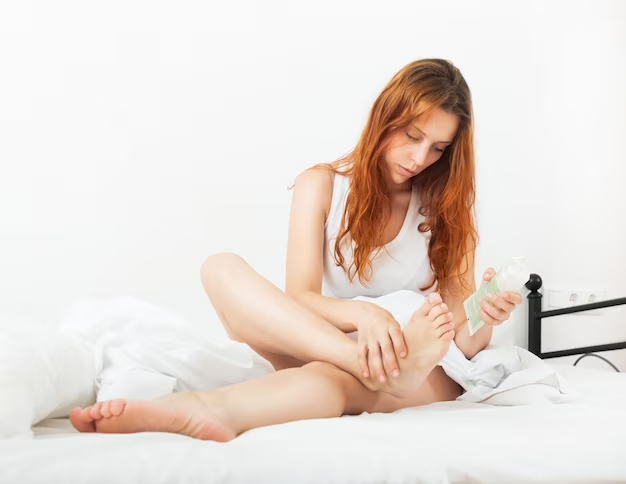If you’re struggling with rough patches on your feet, you’re not alone. Hard skin on the feet—also known as calluses—is a common condition that many people wish to know how do you get rid of extreme hard skin on feet. Fortunately, understanding the causes and following a dedicated care regimen can help you achieve softer, healthier feet. This ultimate guide will explore the reasons behind hard skin build-up and provide effective solutions to soften and prevent it for good. Let’s step into the journey of transforming hard, calloused feet into smooth, supple soles.
Understanding the Causes of Hard Skin
Why does hard skin seem to stubbornly develop on our feet? At the core of this condition is your skin’s natural defense mechanism. To protect itself from pressure and friction, your skin thickens, culminating in the build-up that we recognize as hard skin or calluses. But what causes very hard skin on feet?
- Intensive Walking or Standing: Frequent or prolonged pressure on your feet can accelerate hard skin formation.
- Poor-Fitting Footwear: Shoes that are too tight, too loose, or offer insufficient support can create friction and pressure points.
- Genetic Predispositions: Some people are more prone to developing calluses due to the natural characteristics of their skin.
- Underlying Foot Issues: Conditions like flat feet or high arches may distribute weight unevenly, leading to callused areas.
- Aging Skin: As we age, our skin loses elasticity and moisture, which can contribute to hard skin development.

Proven Methods for Softening Hard Skin
Exfoliation Techniques
Using a pumice stone or foot file can be a gentle yet effective way to manually exfoliate hard skin. For best results:
- Soak your feet in warm water for at least 10-15 minutes to soften the skin.
- Gently rub the affected area with the stone or file in a circular motion to slough off dead cells.
Always follow with a deep moisturizer to replenish hydration in the newly revealed skin.
Chemical exfoliants, such as those containing salicylic acid, urea, or alpha-hydroxy acids, work by breaking down the bonds that hold dead skin cells together. This method can provide a deeper exfoliation suitable for persistent calluses.
Moisturizing Strategies
While numerous moisturizers are on the market, look for products that contain:
- Urea
- Glycerin
- Lactic Acid
- Cocoa Butter
- Shea Butter
These ingredients are known to penetrate deeply and hydrate the skin, restoring flexibility and softness.
Homemade solutions can also offer relief. A nightly routine of massaging feet with coconut oil or a homemade concoction of olive oil and lemon juice can do wonders for dry, calloused skin.
Preventative Measures to Keep Feet Soft
Prevention is key to ensuring the hard skin doesn’t return. Consider these proactive steps:
- Select Proper Footwear: Shoes should fit well and provide ample cushioning. Opt for materials that breathe to reduce moisture build-up.
- Use Protective Pads: In areas prone to pressure, cushioning pads can help redistribute weight and lower the risk of calluses.
Incorporating these habits into your daily routine can help maintain the health of your feet and prevent the reformation of hard skin.

Professional Treatments for Stubborn Hard Skin
Medical Pedicures
Medical pedicures are performed by skilled podiatrists or foot health professionals who have the tools and expertise to safely remove thickened skin, treat foot conditions, and offer advice tailored to your unique needs. These pedicures go beyond cosmetic pampering; they focus on health and hygiene to ensure that your feet are not only beautiful but also in prime condition.
Podiatrist-Recommended Procedures
When over-the-counter solutions just won’t cut it, podiatrists may offer specialized treatments such as:
- Prescription-strength topicals that exfoliate and moisturize more effectively than standard lotions.
- Orthotic inserts which can correct structural foot issues that contribute to callus formation.
Always consult with a professional before undergoing any advanced treatment to ensure safety and suitability for your skin and health status.
Maintaining Soft Feet Over Time
Lifestyle Changes for Foot Health
Implementing lifestyle adjustments can prolong your results. Staying hydrated keeps your entire body – including the skin on your feet – moisturized from the inside out. Also, maintaining a healthy weight can reduce the pressure on your feet, thereby preventing the formation of hard skin.
Regular Maintenance Tips
Here are some enduring strategies to keep up the good fight against hard foot skin:
- Daily Inspection: Give your feet a once-over every day, looking out for areas of concern.
- Consistent Foot Care Schedule: Make it a routine to exfoliate and moisturize your feet regularly. Failing to do so could let those pesky patches creep back.
By staying vigilant with these daily and weekly practices, you safeguard the health and beauty of your feet for the long term.

Conclusion
Hard skin on your feet is often just a sign that you’ve been standing strong and walking through life’s hurdles. But with the right know-how, this mark of endurance doesn’t need to be a permanent trophy. From understanding the causes of hard skin to engaging with professional treatment and lifestyle adjustments, this guide has equipped you with the tools and strategies to reveal—and maintain—softer, healthier feet.
FAQ
Is it safe to cut off hard skin on my own? It’s not recommended to cut hard skin at home as improper techniques can lead to injury or infections. Light exfoliation and moisturizing are safer alternatives. For severe cases, consult a professional.
How often should I moisturize my feet to prevent hard skin? Moisturize your feet daily, preferably after showering when your skin is still moist to lock in hydration.
Can hard skin on feet lead to more serious problems? If left untreated, hard skin can crack, causing pain and infection. It’s important to manage the condition and consult with a healthcare provider if issues arise.
Do foot soaks help with hard skin? Foot soaks can soften the skin and make it easier to exfoliate. However, they should be part of a routine that includes exfoliation and moisturizing for full effectiveness.
Does vinegar get rid of hard skin on feet? Yes, natural remedies such as soaking in Epsom salts, applying apple cider vinegar, or using a paste of baking soda and water can exfoliate the skin. However, for the best results, these should complement a full foot care routine.
